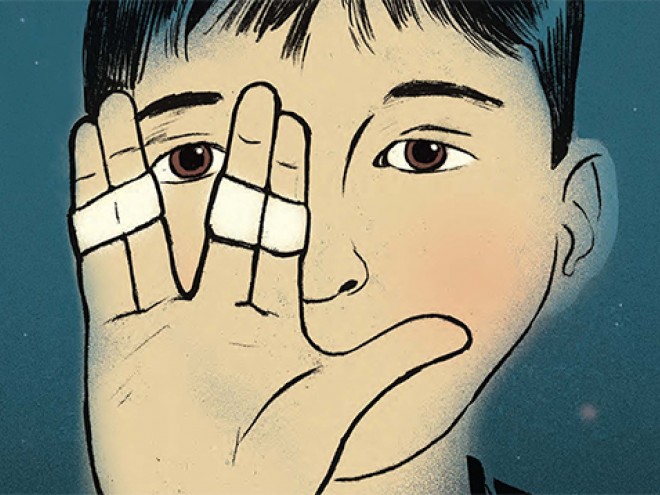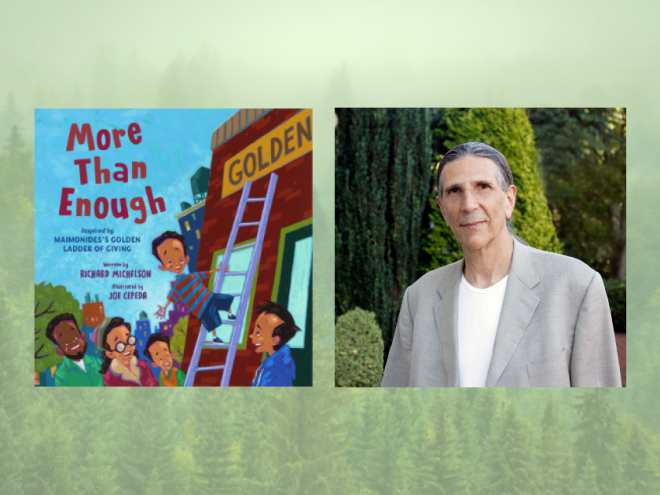
In 2018, I was at the annual conference of the Association of Jewish Libraries. I had received my second Sydney Taylor Gold Medal (The Language of Angels: A Story About the Reinvention of Hebrew). My dear friend, Lesléa Newman, passed me in the hotel lobby. “I’m on my way to have lunch with Jo and Mase,” she said. “Want to join us?”
And that is how my book, One of a Kind: The Life of Sydney Taylor, was born.
Let me back up a bit. We go through life driving down streets, and visiting parks, theaters, and museums, all named for someone whose memory somebody wanted to keep alive. Rarely do we research, or even think about the person being honored. I spent years living on Jerome Street off of Pitkin Avenue in East New York, Brooklyn. Later I moved to Johnston Avenue, Wantagh, and Morris Street, Albany. Until googling these names just now, I had no idea who Pitkin, Jerome, Johnston, or Morris were. I’d never even wondered.
But when I’ve been fortunate enough to win a literary award, I’ve always felt it my duty to learn under whose aegis I’m accepting the prize. Of course, I’d heard of Sydney Taylor and her All-of-a-Kind Family series before I won my first gold medal in 2009 (As Good as Anybody: Martin Luther King Jr. and Abraham Joshua Heschel’s Amazing March Toward Freedom), but I’d never read any of the stories. That was no surprise — I didn’t read many books at all until I entered twelfth grade. But I sat myself down before the ceremony and devoured the first book. By chapter two, when Mama hides buttons to entice her girls to do a better job dusting, I was hooked. As a writer myself, I knew Taylor was composing stories, not penning an autobiography; but I loved the rich historical details, and I, too, wanted to be a part of the Taylor family.
I grew up in a neighborhood that was rapidly changing from Jewish to non-Jewish African American. My parents were totally secular, and we celebrated no Jewish holidays. On weekends, I worked in my father’s hardware store. I didn’t mind delivering paint, but I hated sweeping — that is, until my father dropped some pennies in the dusty corners and under the counters. Very occasionally I would find a nickel or a dime. I could keep what I found, and I became an enthusiastic sweeper.
I related this story to Jo Taylor Marshall, Sydney Taylor’s daughter, at lunch that day. She laughed her loud, friendly laugh. I was to learn that Jo was also one of a kind. She attended nursery school at the original Bank Street College of Education, known for its child-centered philosophy, and continued her schooling at Greenwich Village’s Little Red School House, which promoted progressive politics and an experimental educational philosophy. That alone told me much about both Jo and her mother. Jo would go on to graduate from a performing arts high school and form her own dance company (she performed on Dumont TV’s Stage a Number program and won the sponsor prize of twenty-seven cans of floor wax — cue another hearty laugh). She later earned degrees from Sarah Lawrence College and the Columbia School of Social Work, where she became a faculty member. Now retired, Jo, her partner Mase, and their artistic cat Jiminy divide their time between Florida and New Jersey.
I knew that the original All-of-a-Kind Family manuscript had been abandoned in a dresser drawer, too — until Taylor’s husband rescued it, having heard about a publishing contest, and submitted it without her knowledge.
I didn’t yet know that All-of-a-Kind Family was the first Jewish children’s book to become popular with non-Jewish readers, or that Taylor helped break down barriers so that all ethnic groups could eventually have a voice in children’s literature.
I asked Jo about her mom, and Jo’s answers brought Taylor to life. She was a member of the Young People’s Socialist League; she joined the first iteration of the Martha Graham Dance Company; and she acted off Broadway with the Lenox Hill Players (Lee Strasberg produced an early F. Scott Fitzgerald comedy in which Syd performed). I was already taking notes in my mind and was eager to continue the conversation.
“Come visit us in New Jersey,” Jo offered. “Stay as long as you’d like. We’ll have your bedroom ready.” I’d known Jo all of forty-five minutes, and she felt like one of my lifelong friends. Still, I did not want to impose, so months later, on my way to a family wedding in Pennsylvania, my wife and I decided to stop by for lunch. Jo showed us the bedroom “where you will stay when you come back for a longer visit.” Then she mentioned her mother’s “photo albums in the attic, and a stack of unpublished plays abandoned in a dresser drawer.” Reader, I was not leaving without them!
By this time, I knew that the original All-of-a-Kind Family manuscript had been abandoned in a dresser drawer, too — until Taylor’s husband rescued it, having heard about a publishing contest, and submitted it without her knowledge. I also knew that Syd served as the dance and drama director at Camp Cejwin, a nonprofit Jewish children’s camp, for almost forty years. She wrote many plays and songs for the children, often with the help of her sisters.
“Just bring everything back when you are done with them,” Jo told me. Oh, joy!
We took a quick cell-phone selfie and hugged goodbye. I couldn’t wait to immerse myself in Taylor’s life. I didn’t even mind that those old-fashioned black photo corners ended up all over the floor.
I was pleased to send Jo the first copy of the final book. Though in my excitement, I put the second copy — signed to Harold Grinspoon, the founder of PJ Library —into Jo’s envelope. “I love every word and every illustration,” she gushed, when she called me with her congratulations, “but who the hell is Harold?” Whoops. Her only objection was the author-portrait selfie of Jo and me that was reprinted in the back of the book. I promised her that, for the second-edition reprint, we’d take a professional photo, making sure we both had time to smile at the camera and comb our hair.
Richard Michelson’s books have been named among the Ten Best of the Year by The New York Times, Publishers Weekly, and The New Yorker; He’s received a National Jewish Book Award (and twice finalist) and two Sydney Taylor Gold Medals (and two silver) from the AJL. Born in Brooklyn, Michelson lives in MA and owns R. Michelson Galleries.



